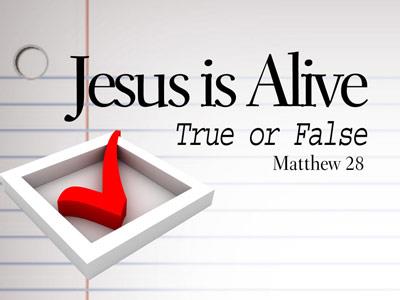-
Christ: No More, No Less Series
Contributed by Philip Cunningham Iii on Nov 28, 2017 (message contributor)
Summary: To educate the church on how people think, why they think that way, and how to disarm their philosophies with the logic of Christ.
Christ: No More, No Less
Sunday AM – Lynn Haven – 01/27/08
FOCUS:
• Postmodernism
• Christ
FUNCTION:
• To educate the church on how people think, why they think that way, and how to disarm their philosophies with the logic of Christ.
A. Pleasantries
B. We are living in an uncertain world.
1. And when I say that, I mean that in more ways than one
a. Yes, we are living in a time of perilous Islamic radicalism that threatens the freedom & stability of our society, which we are striving to hold in balance at this very moment with our rather shaky-looking economy – it is an uncertain world.
b. But, also, that statement has deeper meaning.
c. We are living in a culture where, increasingly, the idea of “truth” is becoming a relative matter.
2. If you are over 50, you may be completely unaware of this movement.
3. But if you’re under 50, you may be aware of some changes but haven’t fully grasped how far-reaching this movement is.
4. What movement am I talking about?
a. Well, to tell you about it, I have to tell you about History.
b. About 1,000 years ago, our world lived in what is known as the medieval times – some folks call it the dark ages.
1) Knowledge was scarce.
2) People lived in fear.
3) There was little to no organization of thought or reason.
c. Long about 500 years ago, beginning in Europe, the world began to pull out of the Medieval age as they began to experience “The Enlightenment” -- some folks called it “The Renaissance.”
1) Knowledge became attainable.
2) Countries began to come together & be organized, and people no longer lived in as much fear.
3) Universities began to spring up, and people began to organize their bases of knowledge.
d. The Age of Enlightenment gave birth to the Modern Age.
1) In this age, knowledge became power – so the pursuit of it was paramount.
2) Countries began to industrialize, and people began to live with more & more creature comforts.
3) Universities began to be more in service of industrial preparation rather than solely a place of learning only.
e. The height of the Modern Age was probably the 1950’s.
1) Many of you and much of our nation look back to the 50’s as sort of a Utopian period – a sort of perfect, idyllic world.
2) Industry continued to churn along like an army of steam-rollers
3) Universities continued to crop up & proliferate in service of our culture.
f. But world events began to chip away at the seemingly rock solid foundation that our modern world had been built upon.
1) The Cuban Missile Crisis of 1962 and the U.S. & Soviet Cold War made people begin to question how good it was for society to continue to modernize its weaponry & arsenal if such a pursuit might mean the end of the world itself.
2) People began to recognize that while we gained a lot with all the new technology in our homes, we weren’t any happier or significantly better off. In fact, the more technology we got, the more we began to erode.
3) And especially at universities, places where it was people’s jobs to examine the world & ask such questions, people were starting to come to the conclusion that modernism wasn’t helping our world as much as it was hurting our world. And that modernism wasn’t answering as many questions as it was raising.
g. So people began to reject long-held assumptions about everything.
1) Some things long-held assumptions that were rejected were good, and led to social justice – such as the Civil Rights Movement.
2) Some things that have been have been rejected by culture were not so good – such as faith in God.
3) A new generation, the baby-boomers, rose up to reject everything that their predecessors accepted.
a) If our predecessors were for falling in line, the new generation decided to rebel.
b) If our predecessors wore short hair, the new generation decided to wear their’s long.
c) And if our predecessors were for war, the new generation decided to be for peace.
d) Everything was flipped on its head:
i. The government and establishment were bad
ii. Change from the norm was good
iii. And all the old assumptions were bunk.
h. As we moved from the 60’s & 70’s into the 80’s, this movement never truly died.
1) Its members grew up, got jobs, and perhaps even became a part of the establishment.
2) But they held onto many of their ideals for society.
i. A movement was born then that doesn’t even have a name of its own.
1) The movement continues to be defined by its rejection of the one that came before it.

 Sermon Central
Sermon Central



